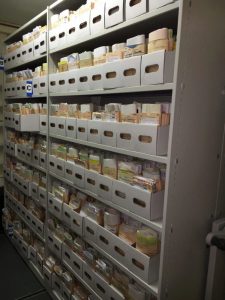Dr Stein and Dr Silman
This is a historical article on two Jewish doctors. Both were GPs that worked in the England, before (and after) the formation of the NHS in 1948.
Dr Maurice Stein
He was born in Dublin. Both his parents were from Lithuania, and emigrated to Dublin in 1900. His father was a pelt sorter and rag and bone man, and mother was a self-taught translator (previously only knew Lithuanian and Yiddish). He was a doctor (and squadron leader) throughout WW2, serving in the N Africa, Italian and German campaigns. He trained at Trinity College, Dublin.
Dr Stein was the father of one of editors of this website, Dr Andrew Stein (also a doctor, a nephrologist).
GP practice at: 171 Beaver Rd, Ashford Kent (also the family home). This is what it was like:
- Worked single-handed or with one partner
- He specialised in paediatrics
- Like all GPs at the time, he did not have a specialist training in general practice
- His (second) marriage to another doctor, Dr Gillian Matthews (did O&G, then GP, then community physician; trained at Newnham (Cambridge)/Kings). They worked together as GP partners for many years. Dr Matthews focused on O&G and set up the first home delivery service in Kent in 1960s
- There were three rooms (one a waiting room)
- A receptionist
- Some appointments (though most just walked in)
- Nurses would attend for specific clinics (e.g. midwife or health visitor)
- Notes were kept in Lloyd George folders
- He and all GPs had Thursday pm off
- He did regular home visits, especially to the elderly.

Lloyd George envelopes (stored patients notes, mixed with hospital letters)

Storage of Lloyd George envelopes
Dr Louis Silman
Born in Leeds 1906, died London 1984.
His father founded a textile company in the city. Dr Silman worked in London during WW2, including during The Blitz.
Dr Silman was the maternal grandfather of Emma Caplin, the wife of Dr Andrew Stein.
Near Dr Silman’s GP practice after a German bomb fell in 1940
GP practice at: Morning Lane, off Mare St, in Hackney, London. Opposite old Hackney Empire theatre. This is what it was like:
- He worked single-handed (though later on in his career had a partner)
- Like all GPs at the time, he did not have a specialist training in general practice
- There were two rooms (one a waiting room)
- 2 clinics a day: 9am-12pm and 4-6pm
- There were no staff (that’s no staff)
- Dr Silman would do all the administration, nursing duties, finance, the lot
- Patients would just walk in, and wait in a queue to be seen
- Tablets were given out directly at the practice (patients did not have to go to a pharmacy)
- Notes were kept in Lloyd George folders
- He did regular home visits, especially to the elderly.

